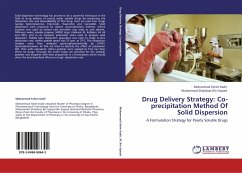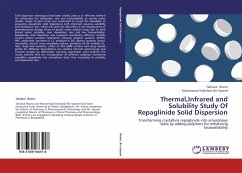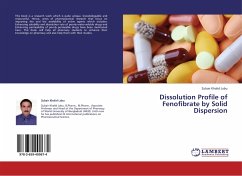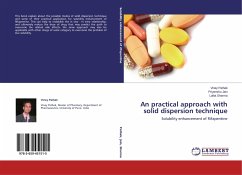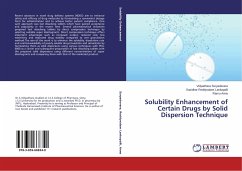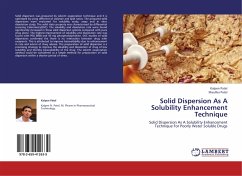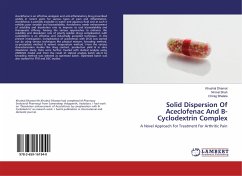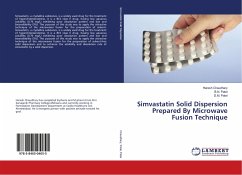Solid dispersion technology has proved to be a powerful technique in the field of drug delivery of poorly water soluble drugs by enhancing the dissolution rate and bioavailability of that drug. Here we used four drugs namely Spironolactone, Etoricoxib, Ibuprofen and Carvedilol. Solid dispersions were prepared by solvent co-precipitation method, where acetone was used as solvent and pet-ether was used as anti solvent. Different water soluble polymer (HPMC 6cps, Kollicoat IR, Kollidon VA 64 and HPC), and as an excipient poloxamer were used to prepare solid dispersion. Paddle type dissolution apparatus was used to study in-vitro dissolution rate, where paddle speed was 75 rpm. at 37°C. The dissolution samples were then analyzed spectrophotometrically by UV-VIS spectrophotometer. At first we tried to identify the effect of poloxamer 407, then with poloxamer others polymer were applied to find out their effect on drugs. Through the entire study, we searched for the suitable polymer and excipient with their proportion in a formulation which would show the best beneficial effect on drugs dissolution rate.
Bitte wählen Sie Ihr Anliegen aus.
Rechnungen
Retourenschein anfordern
Bestellstatus
Storno

